Podcast: Play in new window | Download (Duration: 2:50 — 2.6MB) | Embed
Subscribe: Apple Podcasts | Spotify | Amazon Music | Android | Pandora | iHeartRadio | JioSaavn | Podchaser | Gaana | Podcast Index | Email | TuneIn | Deezer | Anghami | RSS | More
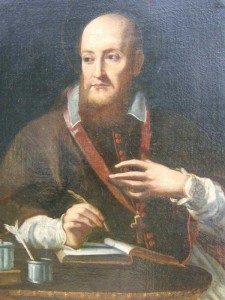 St. Francis de Sales Novena – Day 8
St. Francis de Sales Novena – Day 8
One of the greatest proofs of love that Jesus displayed on the cross was putting up with the imperfections of His neighbor. There He showed us that He has a heart that loves us tenderly and watches over us kindly. He even showed His love for those who put Him to death. In those dire moments the Savior expressed thoughts of love even for his executioners, pardoning them in the very act of sinning! How petty-minded we are when we cannot bring ourselves to forget some injury received, even after a long time! Whoever sincerely pardons another calls down abundant blessings and perfectly imitates Christ. (Spiritual Treatises IV; O. VI, pp. 65-66)
O blessed Francis de Sales, who on earth did excel in a life of virtue,
especially in the love of God and neighbor,
I earnestly ask you to take me under your compassionate care and protection.
Obtain for me conversion of mind and heart.
Grant that all people,
especially (names of those whom you wish to include) may experience
the depth of God’s redeeming and healing love.
Teach me to fix my eyes on the things of heaven
even as I walk each day with my feet planted firmly on the earth.
Help me, through the practice of virtue and the pursuit of devotion,
to avoid anything that would otherwise cause me to stumble
in my attempt to follow Christ
and to be an instrument of the Holy Spirit.
Encouraged by your prayers and example,
help me to live fully my sacred dignity
with the hope of experiencing my sacred destiny:
eternal life with God.
Receive also this particular need or concern
that I now lift up in prayer. (mention your particular need).
O God, for the salvation of all,
you desired that St. Francis de Sales—
preacher, missionary, confessor, bishop and founder—
should befriend many long the road to salvation.
Mercifully grant that we,
infused with the humility and gentleness of his charity,
guided by his wisdom and sharing in his spirit
may experience eternal life.
We ask this through Christ our Lord. Amen.
St. Francis de Sales, pray for us.
For the complete 9 day St. Francis de Sales Novena visit here


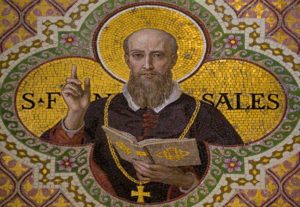 Day 7
Day 7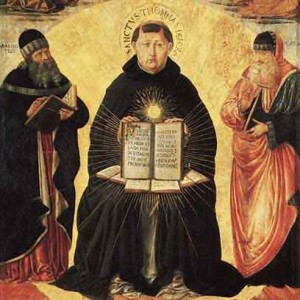
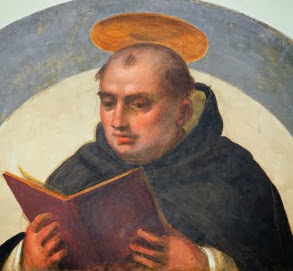
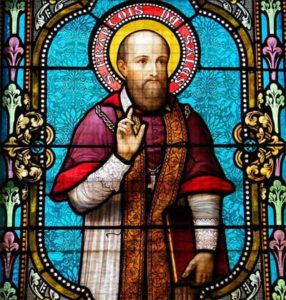 St. Francis de Sales Novena – Day 6
St. Francis de Sales Novena – Day 6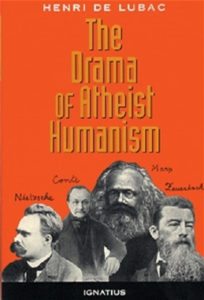 You can find the book
You can find the book 


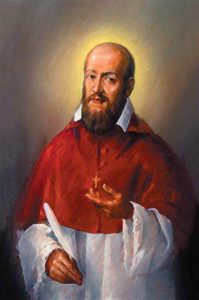 St. Francis de Sales Novena – Day 5
St. Francis de Sales Novena – Day 5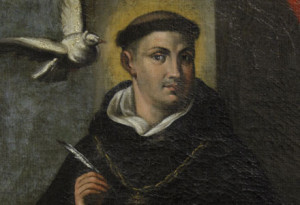

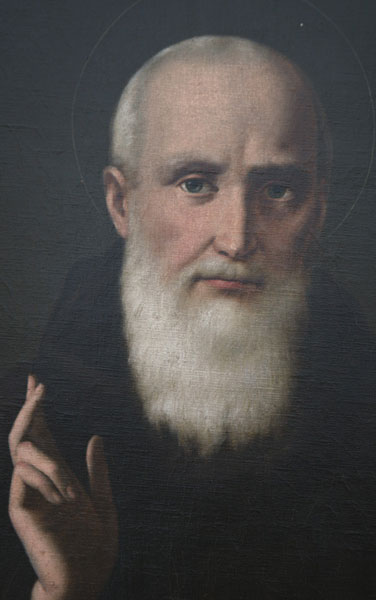 THERE was a man of venerable life, Benedict by name and grace, who from the time of his very childhood carried the heart of an old man. His demeanour indeed surpassing his age, he gave himself no disport or pleasure, but living here upon earth he despised the world with all the glory thereof, at such time as he might have most freely enjoyed it. He was born in the province of Nursia of honourable parentage and sent to Rome to study the liberal sciences. But when he saw there many through the uneven paths of vice run headlong to their own ruin, he drew back his foot, but new-set in the world, lest, in the search of human knowledge, he might also fall into the same dangerous precipice. Contemning therefore learning and studies and abandoning his father’s house and goods, he desired only to please God in a virtuous life. Therefore he departed skilfully ignorant and wisely unlearned.
THERE was a man of venerable life, Benedict by name and grace, who from the time of his very childhood carried the heart of an old man. His demeanour indeed surpassing his age, he gave himself no disport or pleasure, but living here upon earth he despised the world with all the glory thereof, at such time as he might have most freely enjoyed it. He was born in the province of Nursia of honourable parentage and sent to Rome to study the liberal sciences. But when he saw there many through the uneven paths of vice run headlong to their own ruin, he drew back his foot, but new-set in the world, lest, in the search of human knowledge, he might also fall into the same dangerous precipice. Contemning therefore learning and studies and abandoning his father’s house and goods, he desired only to please God in a virtuous life. Therefore he departed skilfully ignorant and wisely unlearned.